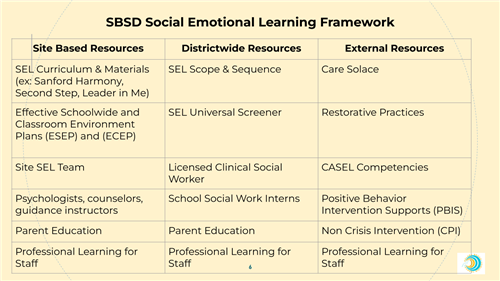-
Using a comprehensive multidisciplinary approach, the goal is to improve student performance by implementing a strong network of services and support for students, staff, and families in the Solana Beach School District.

(not an exhaustive list of external and internal resources)
Select a School...

